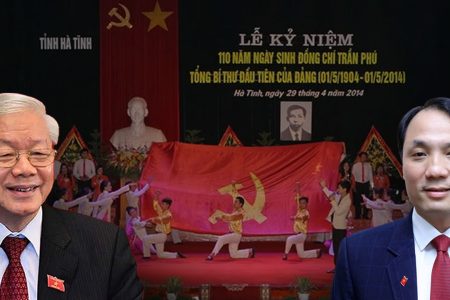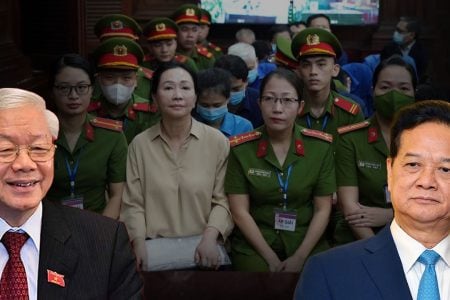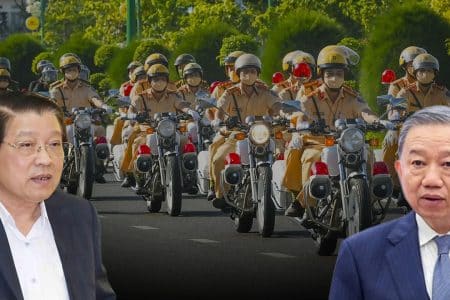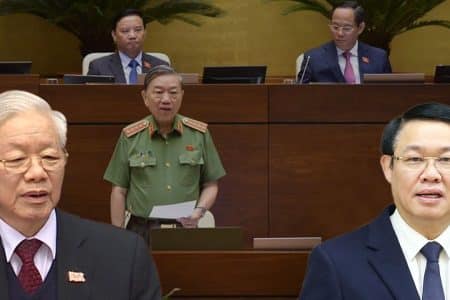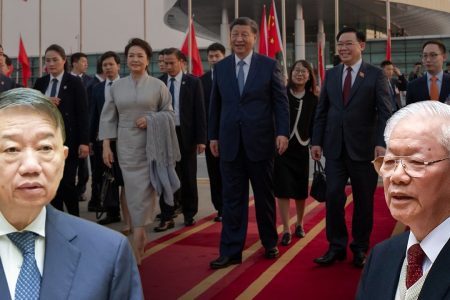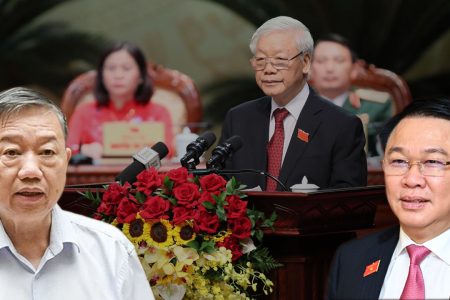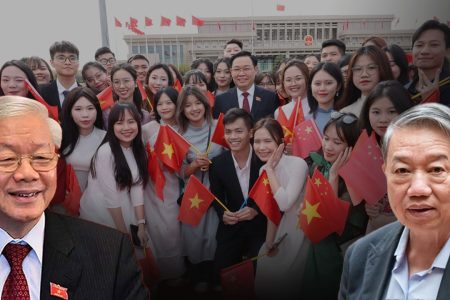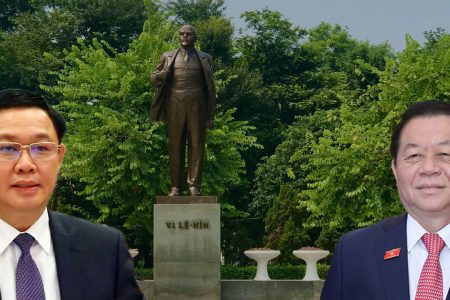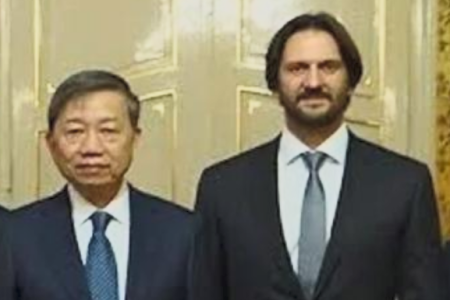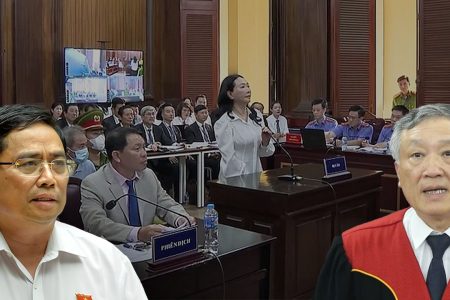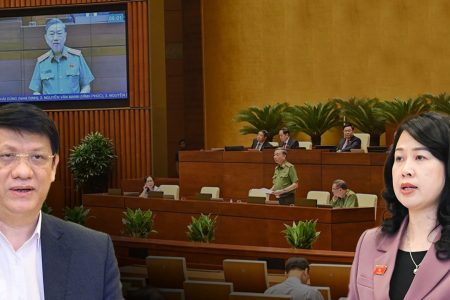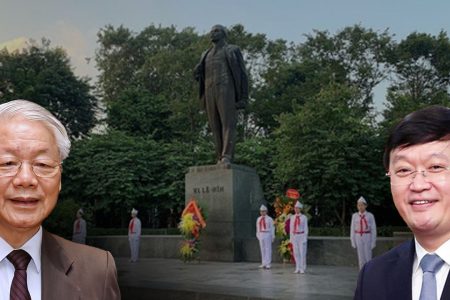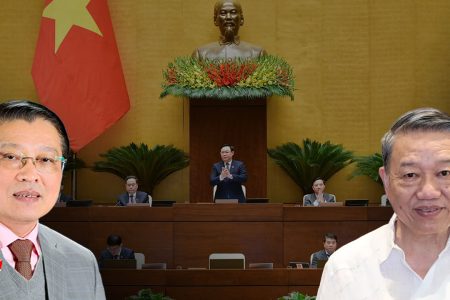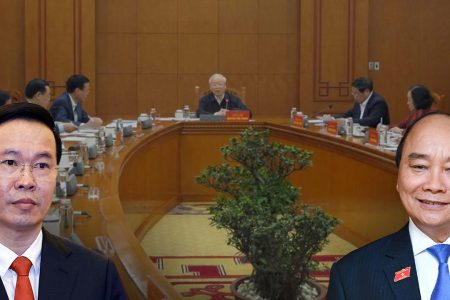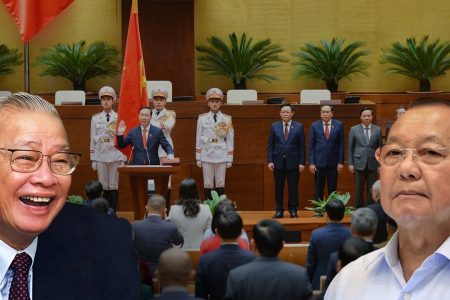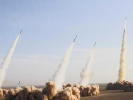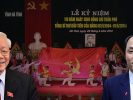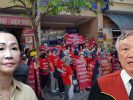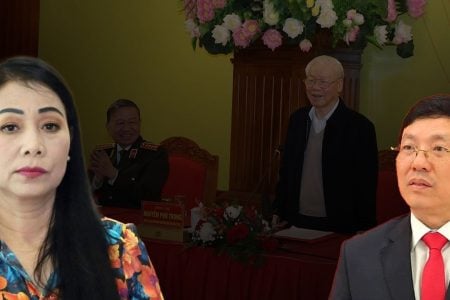
US Secretary of State Antony Blinken has just announced the decision to put Vietnam on a Special Watch List (SWL) for serious violations of religious freedom. When placed on this list, Vietnam will be closely monitored by the United States and officials who violate the risk will face sanctions.
The US State Department quoted Secretary of State Blinken in a statement on December 2 as saying that he put Vietnam on a “Special Watch List” because the country “commits or tolerates serious violations of religious freedom.”
Right on December 2, VOA contacted the Vietnamese Ministry of Foreign Affairs and the Vietnamese Embassy in Washington, DC, and asked to comment on this announcement of the US secretary of state, but so far have not received a response.
Last month, in a statement sent to VOA, a spokesperson for Vietnam’s Ministry of Foreign Affairs said that the country “always consistently implements” a policy of respecting and ensuring freedom of belief and religion.
The US Department of State decided to put Vietnam on the SWL list this time after the United States Commission for International Religious Freedom (USCIRF) repeatedly asks to put Vietnam on its Countries of Particular Concerns or CPC) because Vietnam “seriously violates” religious freedom.
While the request has not been fully met, USCIRF welcomes Mr. Blinken’s decision.
Mr. Abraham Cooper, Vice President of USCIRF, wrote on Twitter: “While we believe that conditions in Vietnam meet CPC standards, we hope that the US State Department’s inclusion of Vietnam on the SWL list will encouraged the Vietnamese government to take concrete steps to address long-standing concerns about religious freedom.”
USCIRF Commissioner Frederick Davie wrote on Twitter on December 2: “We welcome the inclusion of Vietnam on the ‘Special Watch List’ by the US State Department, even though USCIRF has repeatedly recommended that Vietnam be added to the CPC since 2002 and is still concerned about the country’s religious freedom conditions.”
USCIRF considers that religious freedom violations in Vietnam are “systematic, ongoing, and serious,” affecting the Protestant Hmong & Montagnards, Pure Hoa Hao Buddhism, and the Unified Buddhist Church, Independent Cao Dai, and many other groups, and called on the State Department to continue to address these concerns.
From 2005-2006, Vietnam was included in the CPC list by the US Department of State, but in 2007 Vietnam was removed from this list due to Vietnam’s commitment to improving its policy on religion.
The establishment of the SWL list is based on the Frank Wolf International Religious Freedom Act, passed by the US Congress and signed into law by the President on December 16, 2016. This act complements the International Religious Freedom Act of 1998, under which there is only a mechanism for establishing CPC lists.
With this additional law, countries that have not yet reached the CPC threshold but are close to it must be placed on the SWL list for close monitoring, and if there is still no improvement after a period of time, that is the basis for included in the CPC list. Countries designated as CPCs face sanctions, with the heaviest being an embargo.
Activists and independent religious organizations in Vietnam welcomed this decision of the US Secretary of State, and called on Washington to put more pressure on Hanoi to change Vietnam’s policy on religious freedom.
Most Venerable Thich Khong Tanh of Ho Chi Minh City, a member of the Unified Buddhist Church of Vietnam, on December 5 expressed his agreement:

“It proves that the US also has a heart for the violation of human rights and religious freedom in Vietnam. We are also happy in our hearts.”
“But I don’t know if the US has anything to sanction or has something to do to make Vietnam implement and respect international conventions on real religious freedom issues?”
When a country is placed on the SWL list, the US State Department must annually provide Congress with a list of serious violations, the identities of the perpetrators behind each violation, and the sanctions imposed for each perpetrator. These sanctions include a permanent entry ban on the perpetrator and his family members, and a freeze on his US assets similar to the 2016 US Global Magnitsky Act.
From Lam Dong, Mr. Hua Phi, senior member of Pure Cao Dai, a member of the Vietnam Interreligious Council, expressed his agreement with the latest move of the US State Department, and recommended that the US should have sanctions such as the Magnitsky Act are aimed at violating officials, but Vietnam should not be rushed to the CPC list.
“We must find ways to prevent party members, communist cadres who suppress religion… from being put on that special watch list. We should stop those people first, but if we put them on the CPC list, of course the Vietnamese people will suffer.”
“We also want other countries to follow the US government’s Global Magnitsky Act.”
An evangelical Christian in the Central Highlands, who has not been identified for safety reasons, told VOA he is glad that Vietnam has been placed on the “Special Watch List” and called on Washington to put more pressure on Hanoi:
“I hope that Vietnam will change because of the great persecution of religion. They did not allow me to go to groups, or to preach anymore. They banned it, especially the Central Highlands core group.”
“I hope the US will put more pressure on Vietnam so that the suppression of the Central Highlands people will be reduced.”
The US-based non-governmental organization BPSOS said that the US’s inclusion of Vietnam in the SWL list is considered the second biggest “shock” to Hanoi in less than 5 months.
On July 19, the US Department of State ranked Vietnam at level 3 (Tier 3), the worst level for human trafficking, with the risk of the communist-led government being embargoed and individual officials. sanctioned government.
While the United States and Western countries frequently speak out about violations of religious freedom in Vietnam and have raised the issue at the highest levels of government, the Vietnamese government insists that “Vietnam has made great strides in ensuring the people’s freedom of belief and religion.”
Vietnamese media repeatedly stated that the Vietnamese state “respects and protects” the right to freedom of belief and religion in accordance with the law, but at the same time emphasizes that the government prohibits activities that “abuse “religion to violate the law, infringe upon the legitimate rights and interests of the state and citizens.
Thoibao.de (Translated)




